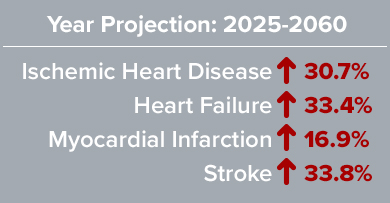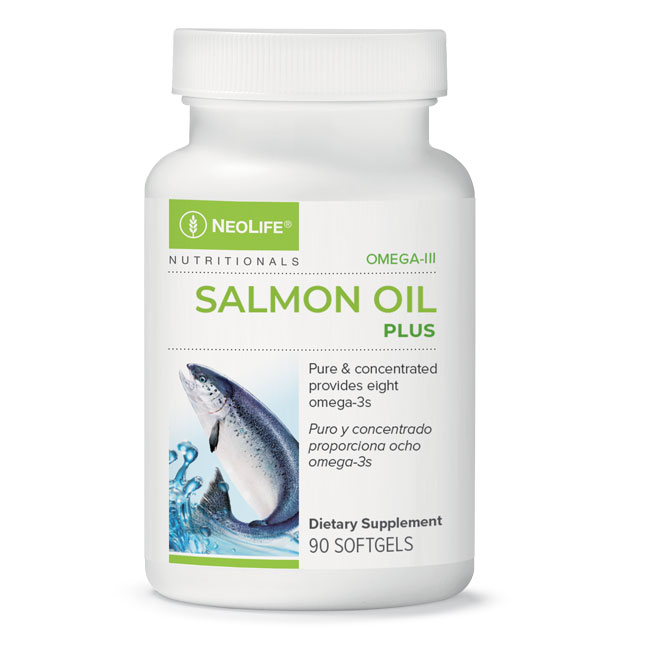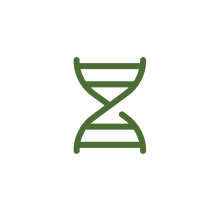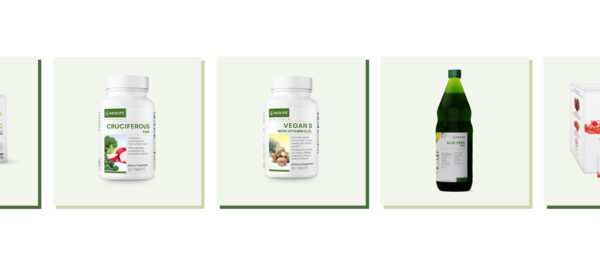 By John Miller
By John Miller
SAB Director, Product Technologist, Researcher
The 7 biggest challenges to your heart health and what you can, or can’t, do about them.
When I heard that my requested topic for this first NeoLife Scientific Advisory Board (SAB) blog of 2023 was “Heart Health” I was excited. But then I realized the scope of the challenge… say something meaningful in a brief blog. Tough, especially considering the SAB and NeoLife have published important, leading edge, science-backed articles on heart health for decades, often well before mainstream science and medicine got on board.
According to the US Centers for Disease Control and Prevention (CDC) there are seven primary causes of heart disease.1 Three we can do little about; age, gender, and family history (genetics). Three are purely lifestyle that we could do something about: smoking, lack of physical activity, stress.
But the big one, the 7th, that is consistent across all of that is UNHEALTHY DIET. It is even implicated in other “causes” of heart disease, like high blood pressure, high cholesterol, high blood sugar, obesity and type-2 diabetes: all diet driven risk factors.1
Heart health is a BIG topic
The heart is an amazingly complicated organ that moves blood around the body, delivering oxygen, nutrients and bioactive substances while removing carbon dioxide and metabolic waste. Not surprisingly there is a ton of data available on the topic. Type “Heart Health” into the Google search bar and you’ll get something like 8,220,000,000 results.
To narrow that down I decided to focus my article on inflammation; in particular, “diet-related, low-grade inflammation and heart health,” the reality that too many people unknowingly live with. For decades mainstream cardio-science focused almost exclusively on the idea that excess cholesterol was the only important factor in atherosclerosis and heart disease. It’s true that cholesterol control is important, but about half of all cardiac deaths are in people without elevated cholesterol.2 That remains true still today.
We’ve known about the “inflammation connection” for decades
As far back as the early 1990’s the SAB, along with many forward-thinking scientific minds such as those at the Scripps Conferences, Linus Pauling Institute, Experimental Biology events and others we attended and participated in, were already pointing to the “oxidation and inflammation” connection as a cause.
One name that stood out was Paul Ridker, Cardiologist and Epidemiologist at Brigham and Women’s Hospital in Boston. Dr. Ridker’s proposal to look for an inflammation connection was largely regarded as naïve and off point. His ideas however were eventually accepted and are credited with being a turning point in thinking. Today inflammation is broadly accepted as a driver of heart disease.
Even with all the research the trend lines for heart disease doesn’t look good
The idea that our diets contain both heart “protectors” and heart “attackers” (no pun intended) seems obvious, but many people either don’t know that or lack the desire to do anything about it. As a result, heart disease remains the leading cause of death around the world. Sadly, that’s expected to get worse, increasing significantly from now to 2060 according to recent studies published by the American College of Cardiology.3
Figure 1. Projections of cardiovascular disease in the US from 2025-2060.3

How to remove the “die” from your diet
Step 1: Take control of your diet. In particular, the balance between inflammatory and anti-inflammatory content.4
Reduce pro-inflammatory foods. Focus on minimizing refined carbohydrates, modified fats and oils, high fat and processed meats, full-fat dairy, fried foods, and sugar-sweetened beverages.5
Increase anti-inflammatory foods. Fruits and vegetables (rich in antioxidants, polyphenols, fiber), whole grains, omega-3 rich fatty fish (like salmon, sardines, mackerel), nuts, legumes, and other high-fiber foods.
Reducing inflammation, reduces risk
Moving the needle from a pro-inflammatory diet to an anti-inflammatory diet is fundamental to optimizing heart health and reducing heart disease risk.5-7
Large scale clinical investigations and meta-analyses have clearly shown that using supplements to help rebalance the relationship between inflammatory and anti-inflammatory foods in your diet is a powerful heart health protection tool we can all employ.8,9*
No surprise to the NeoLife SAB
Understanding and investigating the roles of nutrients in the inflammation/anti-inflammation balance has been a significant part of SAB research and product development for over 30 years.
Evidence from human clinical trials performed on our products by the SAB as well as by others have shown powerful heart health protecting effects.* Our 2005 intervention trial showed that Salmon Oil Plus (SO+) has powerful heart health benefits because it supported healthy inflammatory processes and maintained healthy triglyceride levels.10*
 Follow up research conducted in partnership with SAB member Dr. Arianna Carughi and renowned omega-3 researcher Dr. Karsten Gronert showed that supplementation with SO+ promoted the production of the inflammatory mediators (resolvins) needed to support a healthy inflammatory response.11*
Follow up research conducted in partnership with SAB member Dr. Arianna Carughi and renowned omega-3 researcher Dr. Karsten Gronert showed that supplementation with SO+ promoted the production of the inflammatory mediators (resolvins) needed to support a healthy inflammatory response.11*
 Prior to these studies, work performed by researchers from the US Department of Agriculture and others showed that Carotenoid Complex protected heart health by supporting healthy cholesterol levels.12*
Prior to these studies, work performed by researchers from the US Department of Agriculture and others showed that Carotenoid Complex protected heart health by supporting healthy cholesterol levels.12*
The heart is a muscle that (hopefully) never stops working
Your heart needs a lot of energy to pump blood 24/7. It also needs to be able to increase energy production on demand. To do this your heart has about 2-3 billion cardiac muscle cells, each with up to 5,000 mitochondria per muscle cell. A diet rich with a diverse array of anti-inflammatory/antioxidant nutrients, including omega 3 fatty acids, carotenoids, polyphenols, flavonoids, vitamins C and E can help create an anti-inflammatory landscape in the body, which in turn can help prevent heart disease and mitochondrial dysfunction.
It can be hard to consistently eat a healthy diet and meet nutritional recommendations. Supplements are a great tool to help fill in the gaps. NeoLife provides great selection of nature-based, science-backed, heart-friendly nutritional supplements to help you make sure controlling “diet related low-grade inflammation” is part of your daily heart health game plan.*
Shop all NeoLife Heart Health Products
References:
- Know Your Risk for Heart Disease. Centers for Disease Control and Prevention. Updated December 8, 2019. https://www.cdc.gov/heartdisease/risk_factors.htm.
- Sachdeva A, et al. Lipid levels in patients hospitalized with coronary artery disease: An analysis of 136,905 hospitalizations in Get With The Guidelines. Am Heart J. 2009 Jan; 157(1): 111-7. doi: 10.1016/j.ahj.2008.08.010.
- Mohebi R, et al. Cardiovascular disease projections in the United States based on the 2020 census estimates. J Am Coll Cardiol. 2022 Aug; 80(6): 565-78. doi: 10.1016/j.jacc.2022.05.033.
- Anand SS, et al. Food consumption and its impact on cardiovascular disease: Importance of solutions focused on the globalized food system. J Am Coll Cardiol. 2015 Oct; 66(14): 1590–614. doi: 10.1016/j.jacc.2015.07.050.
- Avoiding Inflammatory Foods Can Lower Heart Disease, Stroke Risk. American College of Cardiology. Published November 2, 2020. https://www.acc.org/about-acc/press-releases/2020/11/02/19/00/avoiding-inflammatory-foods-can-lower-heart-disease-stroke-risk.
- Shivappa N, et al. Association of pro-inflammatory diet with low-grade inflammation: Results from the Moli-sani study. Nutrition. 2018 Oct; 54: 182–8. doi: 10.1016/j.nut.2018.04.004.
- Foods that fight inflammation. Harvard Health Publishing. Published November 16, 2021. https://www.health.harvard.edu/staying-healthy/foods-that-fight-inflammation.
- Souza PR, et al. Enriched marine oil supplements increase peripheral blood specialized pro-resolving mediators concentrations and reprogram host immune responses: A randomized double-blind placebo-controlled study. Circ Res. 2020 Jan; 126(1): 75–90. doi: 10.1161/CIRCRESAHA.119.315506.
- Hu Y, Hu FB, Manson JE. Marine omega-3 supplementation and cardiovascular disease: An updated meta-analysis of 13 randomized controlled trials involving 127 477 participants. J Am Heart Assoc. 2019 Oct; 8(19): e013543. doi: 10.1161/JAHA.119.013543.
- Carughi A. Effect of Omega-3 fatty acid supplementation on cardiovascular risk factors and inflammatory markers. Presented at: Annual Linus Pauling Institute’s Conference on Diet and Optimum Health; 2009 May 13-16; Corvallis, OR.
- Gronert K, Carughi A, et al. Impact of dietary ω-3 and ω-6 PUFA on DHA-derived protective autacoids circuit. Presented at the 11th International Conference Bioactive Lipids in Cancer, Inflammation and Related Diseases; 2009 Oct 25-28; Cancun.
- Kramer TR, Burri BJ. Modulated mitogenic proliferative responsiveness of lymphocytes in whole-blood cultures after a low-carotene diet and mixed-carotenoid supplementation in women. Am J Clin Nutr. 1997 Mar;65(3):871-5.



















